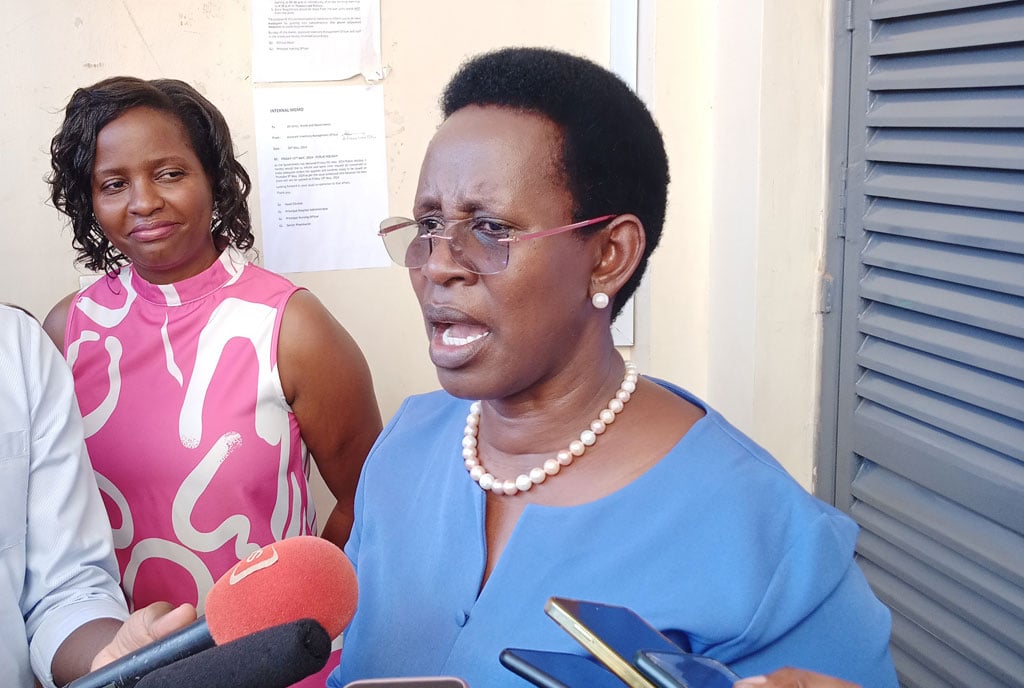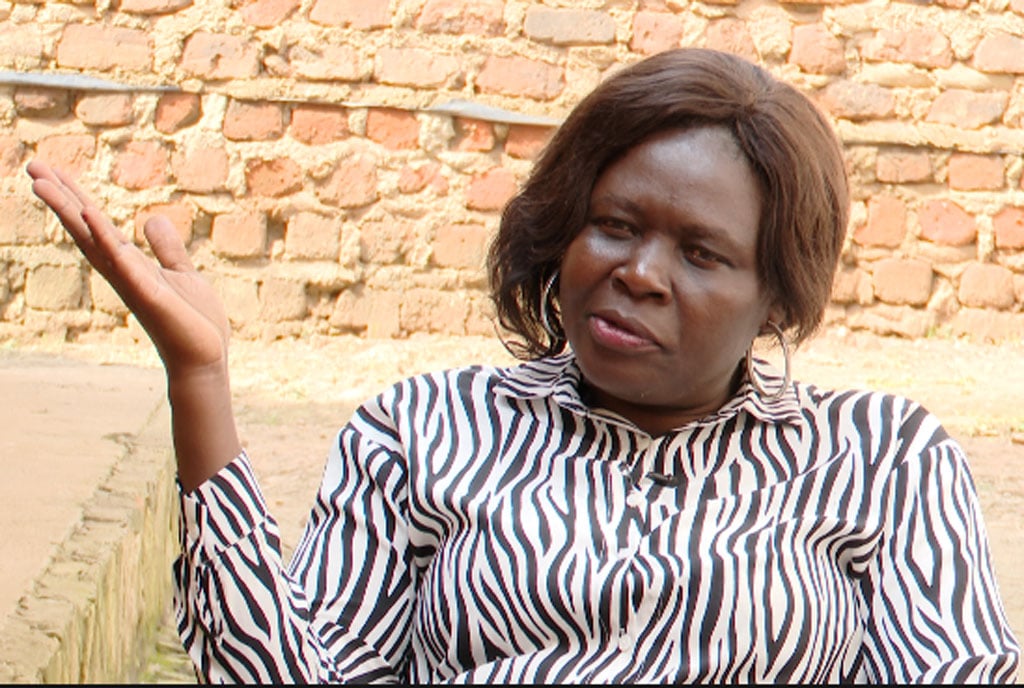Prime
Sickle cell disease: Address key issues

Dr Diana Atwine, the Permanent Secretary of the Health Ministry speaks to the media at Kawempe Hospital in Kampala.
What you need to know:
The issue: Sickle Cell Disease
Our view: It is incumbent upon the powers that be to improve the lives of those suffering from sickle cell disease by addressing the issues aforementioned such as stigma, lack of public awareness and high cost of medicine.
The story of 50-year-old Celine Nalwanga, who was abandoned by her husband with two children suffering from sickle cell disease, is a tale of hope and triumph but of pain too.
Nalwanga, a resident of Kayunga Village, in Wakiso Town Council, was abandoned by her husband because according to him, all their children were useless. She had to fend for the two children, who were expensive to raise given the costly medicines and frequent hospital visits not to mention the stigma from the community. Thankfully, her first daughter graduated this year with a Law degree. (See Daily Monitor, June 19, 2024, “Trials in raising children with Sickle Cell disease”) Unfortunately, not many make it this far, especially with no support.
According to the Ministry of Health, about 250,000 people are living with the disease and 20,000 babies are born with it annually. At least 50 percent of these children die before reaching the age of five.
Dr Philip Kasirye, head of Mulago Sickle Cell Clinic, says on average, they have an annual population of 5,000, while the Daily population ranges from 100 to 200 patients.
On Wednesday June 19, the world commemorated World Sickle Cell Day with the theme, “Hope through progress: Advancing care globally. The day is dedicated to raising global awareness about the disease. In Uganda, a lot has to be done to raise awareness and also deal with the overwhelming stigma toward those suffering from sickle cell disease.
The Permanent Secretary, Ministry of Health, Dr Diana Atwine also reiterated that sickle cell disease contributes to a huge number of children dying before they reach five years.
She urges couples planning to marry to get screened for sickle cell disease before deciding to have children as this would reduce the burden of disease.
Mr Daniel Roy Odur, executive director of Catherine Phil Sickle Cell Support Initiative, points to another key issue to deal with which is stigma. He says there is a need to reduce stigma against persons with the disease and also reduce the cost of medicine -specifically Hydroxyurea.
There are many issues to be dealt with, in regard to sickle cell disease as outlined here by the different players. It is incumbent upon the powers that be to improve the lives of those suffering from sickle cell disease by addressing the issues aforementioned such as stigma, lack of public awareness and high cost of medicine.
Our commitment to you
We pledge:
- To be accurate and fair in all we do.
- To be respectful to all in our pursuit of the truth.
- To refuse to accept any compensation beyond that provided by Monitor Publications Ltd. for what we do in our news gathering and decision-making.
Further, we ask that we be informed whenever you feel that we have fallen short in our attempt to keep these commitments.



